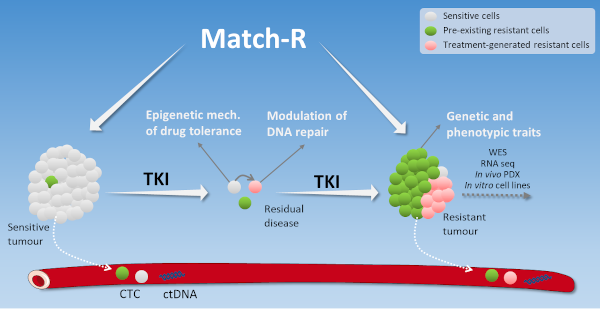Genetic tumor adaptation to kinase inhibitors
This group belongs to the UMR 981 - Molecular predictors and new targets in oncology
‘Precision medicine’ is based on the selection of therapeutic agents for each individual patient based on the mutations, translocations and copy number variations of genes identified in their cancer cells. Targeted therapies inhibiting specifically these oncogenes improve dramatically the patients’ outcome but cancer cells have an intriguingly strong capacity of adaptation limiting the long term benefit of these new treatments. Our project aims to elucidate the molecular mechanisms by which cancer cells escape targeted therapies and identify a way to overcome this resistance.
Research topics
The team studies the mechanisms of resistance to targeted therapies in solid cancers. Linked to the clinical trial MATCH-R allowing collection of repeated biopsies in patients treated with ALK, ROS1, RET, EGFR, BRAF, FGFR inhibitors we elucidate the mechanisms allowing cancer cells to adapt to kinase inhibitors and establish new laboratory models. Also, the resistance of tumor cells to targeted therapy can be acquired through biological processes involving a “drug-tolerant” state. We aim to identify epigenetic modifiers of persistence to help preventing the appearance of resistance in the first place, thereby offering novel therapeutic strategies to treat cancer.

